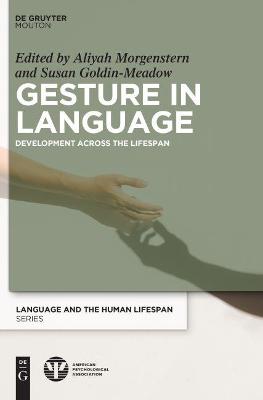Language and the Human Lifespan
1 total work
Gesture in Language
Published 30 November 2021
When do human beings begin producing gestures, and how do they evolve throughout our cognitive and social development?
This book investigates the rich and complex ways in which gesture precedes language development and then is used in conjunction with language across the lifespan.
Some experts argue that gesture is a part of language, while others argue it is a partner to language. But all agree that gesture plays a major role in language development and practices, and therefore must be captured by scientific analyses.
This volume explores gesture's many functions--communicative, restorative, cognitive--across cultures and ages, in monolingual and multilingual populations, in students and in teachers.
Gestures, verbal productions, signs, gazes, facial expressions, and postures are all part of our socially learned, intersubjective communicative systems that we combine for the purpose of sharing meaning, referring to present and absent entities and events, expressing projects, desires, and feelings, and so much more.
Collectively, the chapters demonstrate how gestures contribute to the cognitive and social development of humans within their lifespan, and may also indicate the efficacy of interactional practices and cognitive processes.
This book is thought-provoking reading for psycholinguists, cognitive scientists, and all who study language development.
This book investigates the rich and complex ways in which gesture precedes language development and then is used in conjunction with language across the lifespan.
Some experts argue that gesture is a part of language, while others argue it is a partner to language. But all agree that gesture plays a major role in language development and practices, and therefore must be captured by scientific analyses.
This volume explores gesture's many functions--communicative, restorative, cognitive--across cultures and ages, in monolingual and multilingual populations, in students and in teachers.
Gestures, verbal productions, signs, gazes, facial expressions, and postures are all part of our socially learned, intersubjective communicative systems that we combine for the purpose of sharing meaning, referring to present and absent entities and events, expressing projects, desires, and feelings, and so much more.
Collectively, the chapters demonstrate how gestures contribute to the cognitive and social development of humans within their lifespan, and may also indicate the efficacy of interactional practices and cognitive processes.
This book is thought-provoking reading for psycholinguists, cognitive scientists, and all who study language development.
